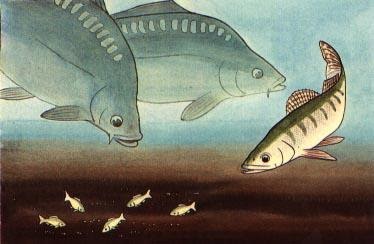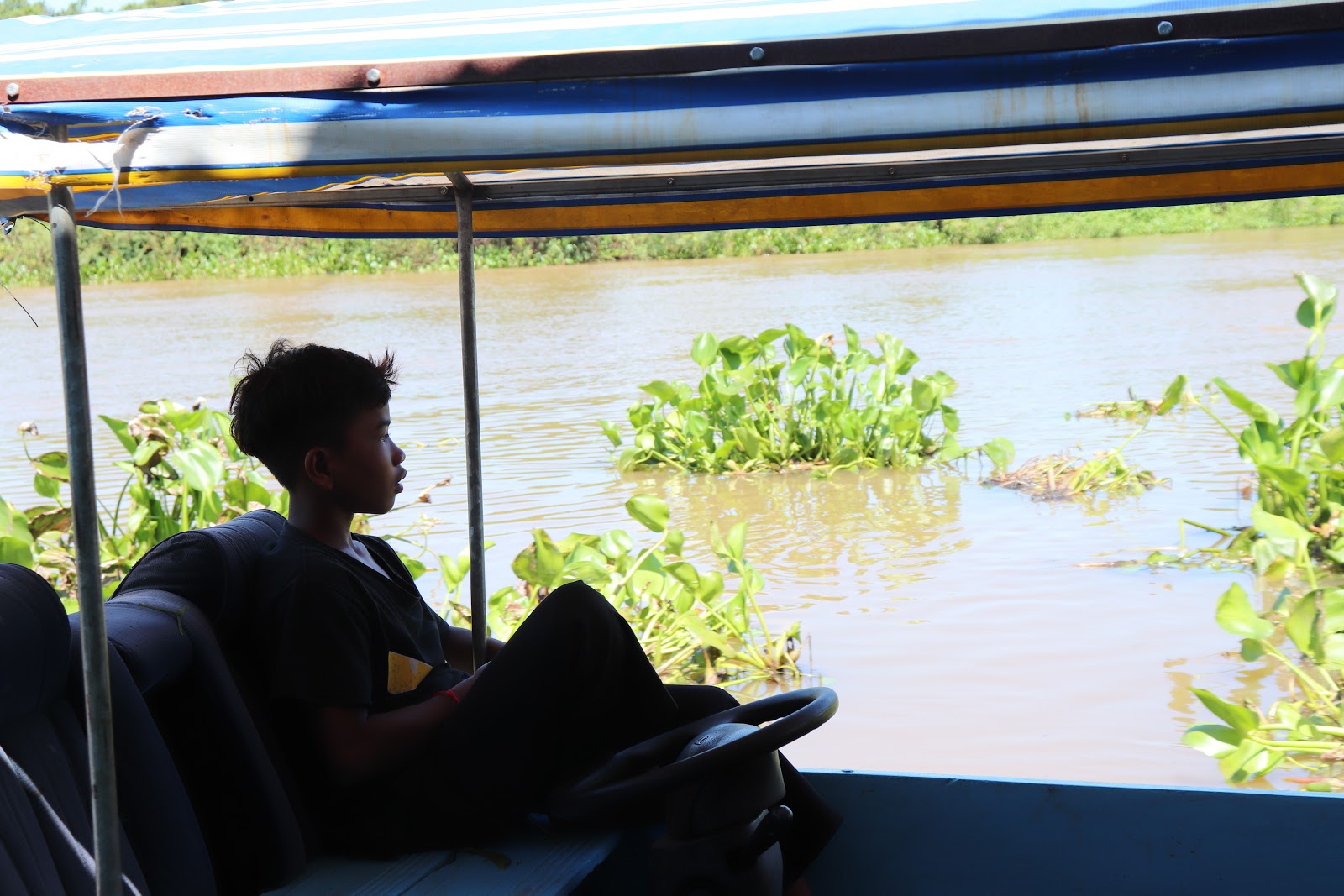Who is the “Mother of Freshwater”?
Written By: Nuth Pisethrachana, YEA: Mekong Generation 2
Publication Date: 01 March 2021
Translated and Authorized By: Young Eco Ambassador
What do you think of when you hear the word “Brood Stock”?
When we first heard of the Brood Stock, we may think of the biggest-female fish in the Mekong river, or maybe think that it is the king of the fish. However, this is not correct.
Hence, what is the definition of “Brood Stock?
“The brood Stock is similar to the adult female. Disregard the size, as long as they grow to the point where they can be fertilized, they will become breeds,” said Thach Phanara. We cannot judge whether one fish could not be the brood Stock by just its appearance because some species are small, whereas some are big.
By the brood Stock here, we only refer to those inside the river, not the sea. The most important thing is that these broodfishes are very intelligent as they can sense when or where they could swim and when or where they can lay their eggs. Moreover, they know exactly about their needs and the condition that their spawns can survive after they laid them. Without those conditions, the spawns would never be hatched, and they would have been useless if they had been destroyed.
The newly-hatched eggs are even more clever as they know how to swim, how to find food, and they know where their shoal is even though they are floating in the water and can flow into other places that they do not know. Aren’t they being so cool?

Why the eggs are hatched differently within the same space?
Fish do not just hatch their eggs unless they know the proper condition in which their eggs can survive. Without proper condition, their hatch-egg will die. They seem to be very smart, but only if they live under the natural conditions, they live with from the beginning do not change much in line with their annual habits.
It’s the fish brain, not humans that can adapt themselves to the new environment easily. If there are any changes in the river, the fish is easy to get lost. Therefore, we should put ourselves into the fish‘s shoes as we are more intelligent than them.

Do you want to know what those conditions are?
Let’s discuss the technical words about the fish reproduction, type of fish, and the condition they live in. Those words are not that difficult to understand. So, we already knew that those broodfishes are adults. During the rainy season, they are already fertilized, they are just waiting for their time to hatch.
“Fish are divided into three categories: black, white, and gray,’’ said Mr. Phay Somany, the conservation coordinator between the Fisheries Administration and WWF. Blackfish is not a migratory fish, the condition it needs to hatch is the rain. It will hatch its eggs immediately after the rain. Blackfish includes Trey Kompleanh, Trey Slat, Trey Ros, and Trey Aondeng. All of them are the fishes that we eat almost every day.
Whereas, the gray fish needs the flowing water for its eggs to grow. Therefore, they have to swim to a place that is suitable for their conditions. Gray fishes include Trey Kaek, Trey Chpen, and Trey Krohae.
Whitefish is a migratory fish. From year to year, it needs to navigate all across the Mekong river, from Tibet, China to the Mekong Delta, Vietnam. When it comes to the spawning season, the conditions it needs are strong floodwaters, and rocks which allowed them to hatch. Because their eggs are the floating type of eggs, they need a strong run off-water to stimulate the growth of those eggs. Whitefish is mostly big such as Trey Kul Reang, Trey Bra, and Trey Reach, etc.
In conclusion, those fishes need those conditions not only to hatch their eggs but also to make sure that they can survive. They need different conditions to live. If compared to humans, it is similar to those who set the date to deliver their babies.

Let’s take a look at the change in river conditions
This change is caused by human activities. Normally, big fishes need a big space to swim, but that is not possible anymore. It is because people build the dams, and add another barrier. From Tibet, China to the Mekong river, Cambodia, there are hundreds of dams, which decrease the amount of water.


Currently, our river is gradually running out of water and fish, have you known this? More importantly, there is illegal fishing using net while the fish is going decrease. “The Mekong river used to be a home of many biodiversity and fishes. However, there are only a few species left now as some species are endangered and some are already extinct,” said Thach Phanara, one of the fish researchers.

Oops! If there is no more fish, what are we going to do?
The broodfishes are crucial for fish reproduction annually. Thus, if there are no more broodfishes, we will not have fish to eat anymore. Once the number of broodfishes keeps going down, there is no more reproduction. Without the fish egg and the hatched egg, there is no more fish for the next generation. Do not wait until they all gone. There is no other fish more delicious than the Mekong river’s freshwater fish. Therefore, we need to protect them to ensure their long-term existence.
To sum up, the presence of fish in the Mekong River these days is due to the large number of broodfishes, and they were not as disturbed and threatened by humans as today. Therefore, may I call out everyone to share this among your friends and family as much as possible. We want them to know about this and help reduce the consumption of fish eggs in particular. If everybody stops consuming fish eggs, the fishermen will not bring them to sell anymore. On the other hand, all fishermen should obey the ministry’s regulations. It should be time to cease these kinds of illegal actions. The Ministry, and other cooperative organizations, take such measures for our benefit in the future. Without them, we would be out of fish for a long time ago.
“Who is the “Mother of Freshwater”?” is one of the three blog articles written by Nuth Pisethrachana, YEA: Mekong Generation 2.
*Youth Program: Mekong Generation2 has been trained by Wapatoa and YEA team.


